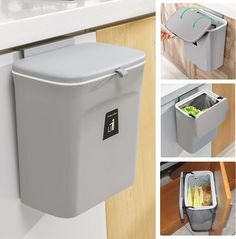How Much Does a Bag of Compost Cost?
Buying compost can be a difficult decision. There are many things to consider, such as how much you want to buy, and whether you should buy it in bulk or individually. Here are some tips to help you make the right choice.

Source: https://i.pinimg.com
Making your own compost
Creating your own compost can be a great way to reduce your waste and save money. Composting is also beneficial for the environment. By converting kitchen waste into compost, you can reduce your carbon footprint.
The process of composting is fairly simple. It takes four basic components: nitrogen-rich materials, organic materials, bacteria, and oxygen. All of these components work together to restore soil vitality and improve your garden's soil texture.
First, you need to determine the proper mix of nitrogen-rich and carbon-rich materials. This depends on your soil's nutritional needs and what you are trying to create. For example, if you need to provide plants with nitrogen, you should add greens. You should also add a layer of browns.
In addition, you will need to add oxygen for the bacteria to break down the material. You can achieve this by drilling 1.5 cm aeration holes at 15 cm intervals around the can.
Next, you will need to choose a spot for your compost bin. It should be out of direct sunlight and away from extreme temperature and moisture.
Buying bulk
Buying bulk bags of compost can be a daunting proposition. You are probably not sure how much you need, or what is available. It might be a good idea to consult a local landscaper or soil and mulch supplier to get a sense of the situation. They are likely to be able to suggest a suitable provider.
There are many places to purchase bulk Compost Bag. Garden centers often have the product in stock. Some might even offer bulk bagging. Other options include nurseries and box stores. If you have a friend or neighbor who is a gardener, you can have your compost delivered to their yard or yours. Buying compost in bulk may be the only practical solution for larger jobs.
The cost of the same sized bag of compost might be prohibitive for most average sized yards. There is a better way. Fortunately, there are companies who have figured out a way to do it for you.

Source: https://i.pinimg.com
Choosing the right amount
Choosing the right amount of compost is an important part of a successful composting process. A compost in a compostable plastic bags helps you to create a rich, healthy soil that is better suited for growing plants. It also aids in retaining moisture. However, it's not all that simple. Depending on your location and feedstocks, the results can vary.
The best way to figure out the right amount of compost is to calculate the square footage of your compost pile. For example, a 10 feet by 10 feet by 0.25 feet thick pile would require 25 cubic feet of compost. Fortunately, there are online calculators that make this process easy.
The same rule of thumb applies to the size of your cover material. If your materials are too bulky, they may not hold the water that your compost pile needs to get started. In addition, a good covering material should be at least a couple inches thick. Adding a layer of straw or manure will help to keep the pile moist.
Buying cheap compost is a false economy
Buying cheap compost is a big mistake. You should buy quality compost that will not only grow your plants but also keep them healthy and looking beautiful. Before you make the purchase, you should know what you are getting and how to use it. You can visit online sites that offer compost guides. However, you should be prepared to spend some time and ask questions.
Before you decide to buy compost in a compostable bags, you should look at the nutrient content of the compost. The nutrient content may vary according to the type of plant you want to grow. Some of the nutrients that are important in compost are nitrogen, phosphorus, and potassium. You should also check the moisture content and the pH of the compost. These will help you to select the right one for your plants.
A good way to check the nutrient content of the compost is to get a laboratory analysis. The laboratory may be able to provide you with a list of the particle size, the nutrient content, and the water-holding capacity of the compost.





